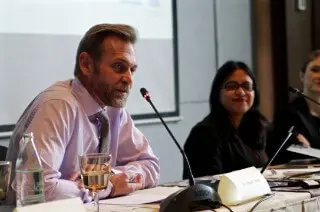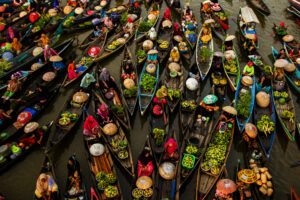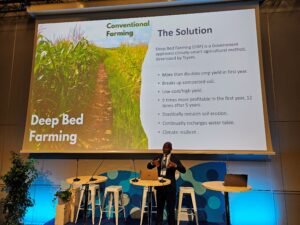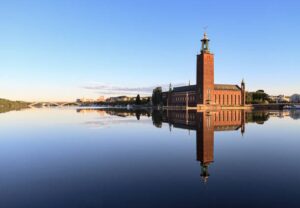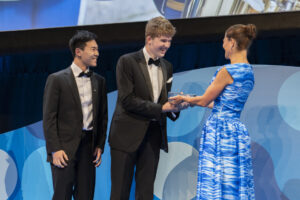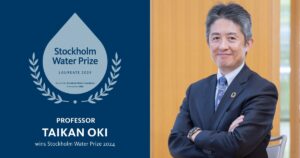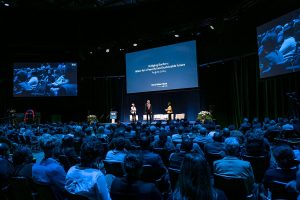WGF in discussions about Water Integrity in Asia
WGF's Director, Dr. Håkan Tropp, attended a UNDP workshop, 24-25 November in Bangkok, on anti-corruption in Asia and the Pacific to advocate for the importance of bringing in a sector perspective in anti-corruption work and explore opportunities for collaboration around water integrity in the region.
 UNDP is currently starting up a new programme called Anti-corruption for Peaceful and Inclusive Societies in Asia and the Pacific (ACPIS). The objective of ACPIS is to work with governments and civil society in the Asia-Pacific region to incorporate effective anti-corruption approaches into national government policies, with a focus on preventing corruption in the delivery of public services. This investment will also involve the development and dissemination of policy research on topical anti-corruption issues, including the link between corruption and violent extremism in the Indo-Pacific region.
UNDP is currently starting up a new programme called Anti-corruption for Peaceful and Inclusive Societies in Asia and the Pacific (ACPIS). The objective of ACPIS is to work with governments and civil society in the Asia-Pacific region to incorporate effective anti-corruption approaches into national government policies, with a focus on preventing corruption in the delivery of public services. This investment will also involve the development and dissemination of policy research on topical anti-corruption issues, including the link between corruption and violent extremism in the Indo-Pacific region.
According to Håkan Tropp it is very important to bring in a sector perspective in anti-corruption work: “So far there has been very little work done in relation to anti-corruption in particular policy sectors, such as water, education and health. Importantly a well thought through anti-corruption strategy needs to contain work to strengthen national institutions such as the parliament and judiciary systems, but equally important anti-corruption measures need to be implemented in particular sectors to improve the quality and distribution of public services.” Based on its previous experiences working in Sub-Saharan Africa and the MENA-region, the Water Governance Facility is now developing a Water Integrity Asia programme and is seeking out collaborative partners.
Corruption in the Asian context has serious social and economic development impacts. The Philippines illustrates the magnitude of the problem: According to the Global Financial Integrity, between 1960 and 2011 the Philippines lost $410.5 billion from illicit activities. The World Bank estimates that 20% of the national budget lost to corruption. In anti-corruption courts conviction rates are below 5%. Moreover, elite capture is prevalent. In 2010-2011 the collective wealth of the richest 40 families controlled a staggering 76.5% of the country’s overall increase in GDP. Corruption has greatly affected the siting and quality of construction of infrastructure and delivery of public services. The Philippines lagged behind on MDG poverty reduction, education, and health.
It clearly points to challenges of political or elite capture as well as petty corruption that adds up being very detrimental to improve public services, such as water, education and health. It also affects water resources pollution and allocation in very detrimental way, often excluding the poor from improved access to water for household uses or for irrigation. But there are also some positive trends in the region. Singapore has for a long time ranked very high on the Transparency International’s Transparency Perception Index as being one of the least corrupt countries in the World. Indonesia’s Anti-Corruption Behavior Index from 2105 shows that progress is being made in countries like Indonesia and Thailand. Fourteen countries in the region have during the past 10 years adopted national anti-corruption strategies and hence there is a growing realization in the region that corruption must be tackled to improve social and economic development and to accelerated the implementation of the Sustainable Development Goals (SDGs).
It is clear that there is a strong demand from many governments in the region to come to better grips with anti-corruption linked to water services and water resources management. The WGF supports governments to assess water governance situations, strengthen capacities on water integrity and advance the knowledge on drivers, impacts and effective measures on water governance and integrity.
